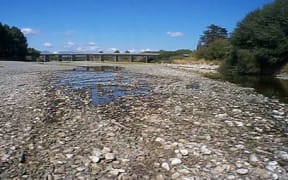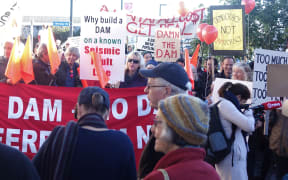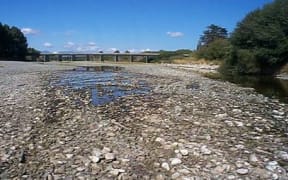Regional Economic Development Minister Shane Jones has called Tasman District councillors who voted down the $100 million Waimea Dam "political mannequins" and said ratepayers will be under "enormous stress" to fund future water supplies.
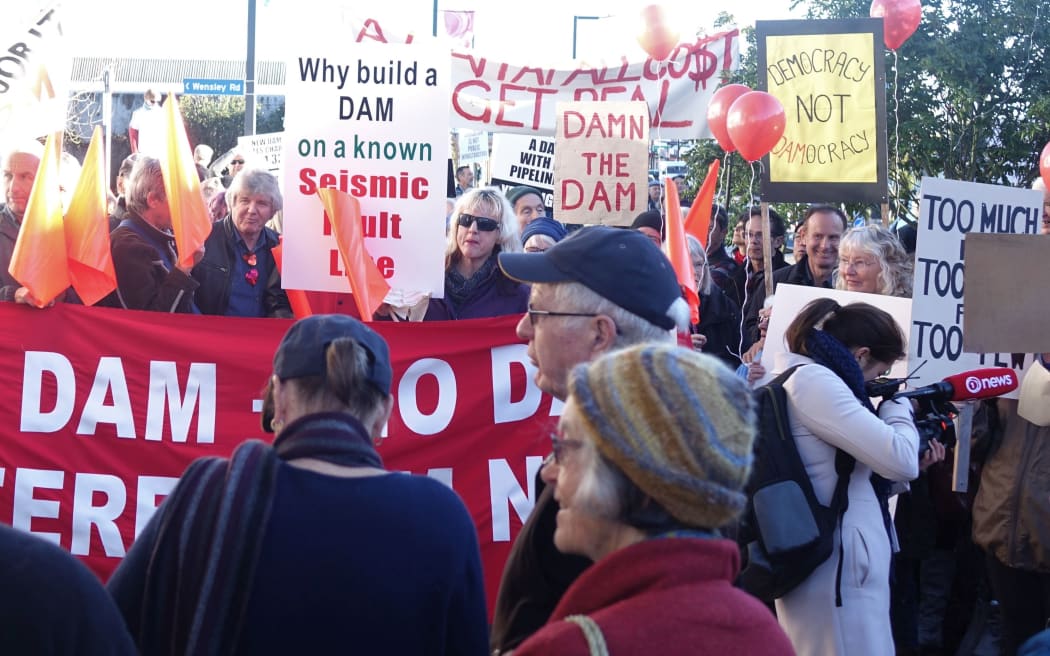
An earlier protest against the Waimea Dam. Photo: RNZ / Tracy Neal
In an interview with Morning Report today, Mr Jones three times referred to the councillors as "political mannequins".
"I think a set of political mannequins demonstrated they exist in council and not only in shops.
"We respect the fact, as irksome as I find it, that local councillors have voted against the dam.
"They obviously realise that the Crown money is no longer available. They must have a secret stash of dough that we don't know about."
The Council voted 8-6 against the dam after a six-hour meeting and will now discuss alternative options to secure the area's water supply.
The Tasman District Council was a partner in the $100 million Waimea Community Dam project, along with Waimea Irrigators and Crown Irrigation Investments, but opposition had grown after recent costings put the price tag at $102 million - $26m more than previously estimated.
Mr Jones said he felt sorry for water users in Tasman and people trying to secure their future water needs.
"Now Councillors must go out and explain to their communities how they are going to meet the costs in the absence of Crown capital of future water security.
"Obviously any funding from the Provincial Growth Fund is dead because the Council has voted not to proceed.
"I have a vital interest in provincial economies, in jobs, in sustainability and facilitating and encouraging stakeholders to take steps to plan for a changed set of climatic circumstances into the future. I think industry will be the loser. The ratepayers will be under enormous stress to secure a greater level of stability for their water supplies."
The $100 million project is off the table, after councillors voted by a narrow margin yesterday to drop the project, and look for an alternative.
It ended more than 15 years' work and millions of dollars spent already to reach consent stage.
The decision to drop plans the dam is a sign of how "tough" it is for council to fund big infrastructure projects, the deputy mayor said.
Mr King, who has been on the council since the dam was first mooted, said many people had spent years on a process that had gone nowhere.
"I guess I'm massively disappointed and frustrated that at the end of the day it's become a very divisive debate over how it's funded.
"I accept it's the political reality but it's...gutting."
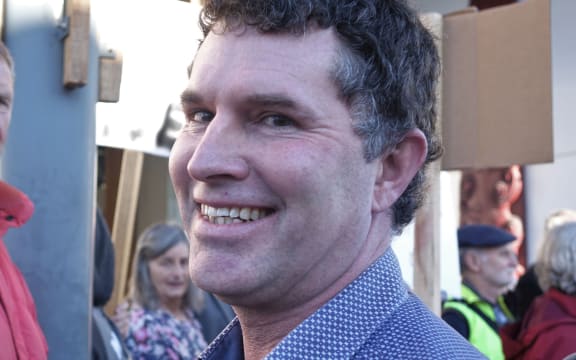
Tasman deputy mayor Tim King Photo: RNZ / Tracy Neal
Mr King said it was symbolic of the growing challenges facing councils over how to fund infrastructure.
"How much it's going to cost, how long-term it is, who are the beneficiaries, how's it paid for, and when you're dealing with infrastructure that has 100 years worth of capacity for the community, but you're paying for it now - that is tough."
The growing chorus of opponents to the project were relieved it was now off the table.
Anger reached fever pitch in the council chamber in Richmond, as opponents, including Colin Garnett, put their case.
"You have about 300 employees here, you spend 10 million bucks and you can't find one person in this whole institute that can give an alternative that's less than $100 million. That's pure incompetence...I'm angry," Mr Garnett shouted at councillors.
The council said it could not meet its urban water supply needs, now and in the future, without water augmentation on the scale that the dam was to have provided.
A 2018 economic report shows financial losses to the district without the dam at a minimum of $932m over the next 25 years, based on 20 percent water cuts for farmers and growers.
But there was clear division among councillors as to where they stood.
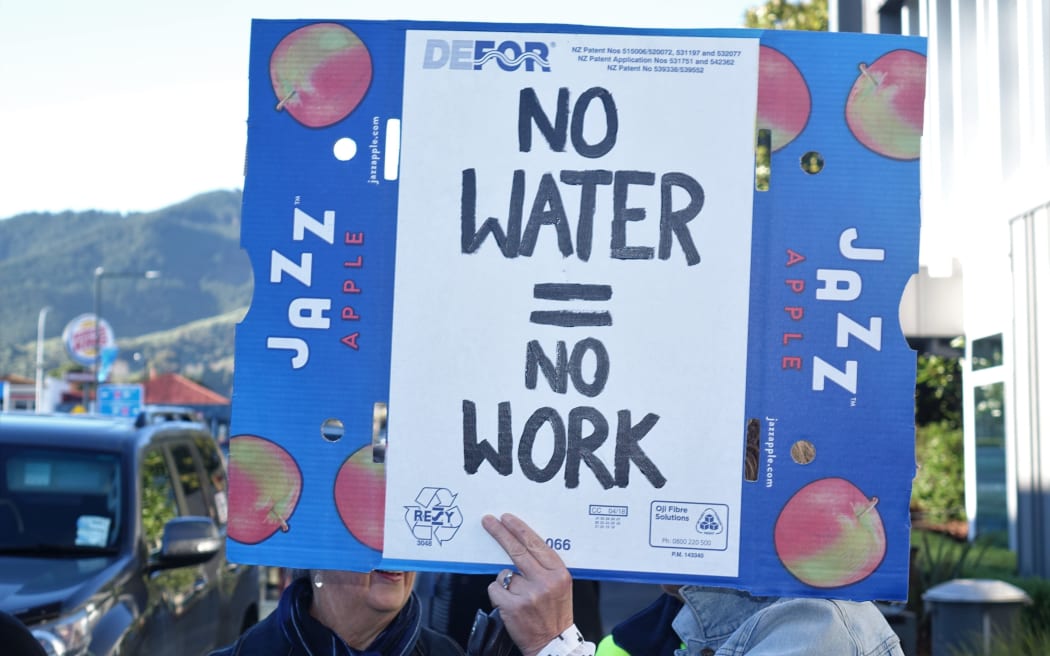
A supporter of the Waimea dam at a protest. Photo: RNZ / Tracy Neal
Councillor Dana Wensley could not get an answer from council staff over which projects would have to be dropped if the dam went ahead.
Ratepayers were faced with 51 percent of the cost with the remainder to have been funded by the company Waimea Irrigators, made up of growers and farmers, and Crown Irrigation Investment
The council made a late bid for $18m from the Provincial Growth Fund to try to bridge the funding gap.
Mayor Richard Kempthorne told the council that after speaking with government ministers the chances of getting all that were slim.
"It was made perfectly clear to me that we should not expect a significant contribution."
The mayor also said the council might have to impose tougher water rationing than usual if this summer was as dry as in recent years.
The no-dam rules in the district plan will now be activated, and the council would have to work under urgency to seek an alternative water source, he said.
Nelson MP Nick Smith said the heat was now on the eight councillors who opposed the project to come up with a credible alternative.
Murray Dawson of opposition group Water Information Network was unconvinced by the council's confidence that the dam was the cheapest option.
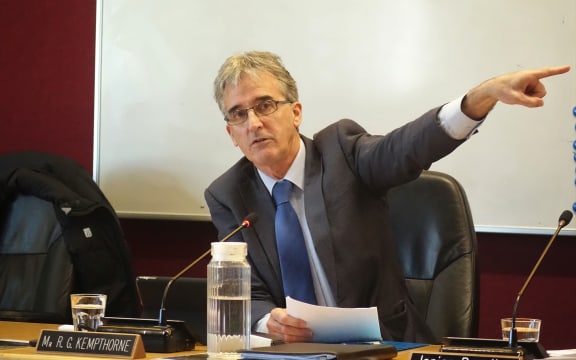
Tasman Mayor Richard Kempthorne Photo: RNZ / Tracy Neal
"The real question is, compared to what? The engineering alternatives have been costed as more expensive per cubic metre than the dam, but non-engineering alternatives have not been given much consideration," Mr Dawson said.
But the council said the alternatives were either more expensive, did not provide the same drought protection or could not cope with future demand.
Waimea Irrigators chairman Murray King, a Waimea Plains farmer, said there was no option but to return to the drawing board.
"We'll ascertain what our options are and we'll come back with some other solutions.
"We're going to have to because we can't not do anything."
Mr Kempthorne said the council would begin straightaway on alternatives.
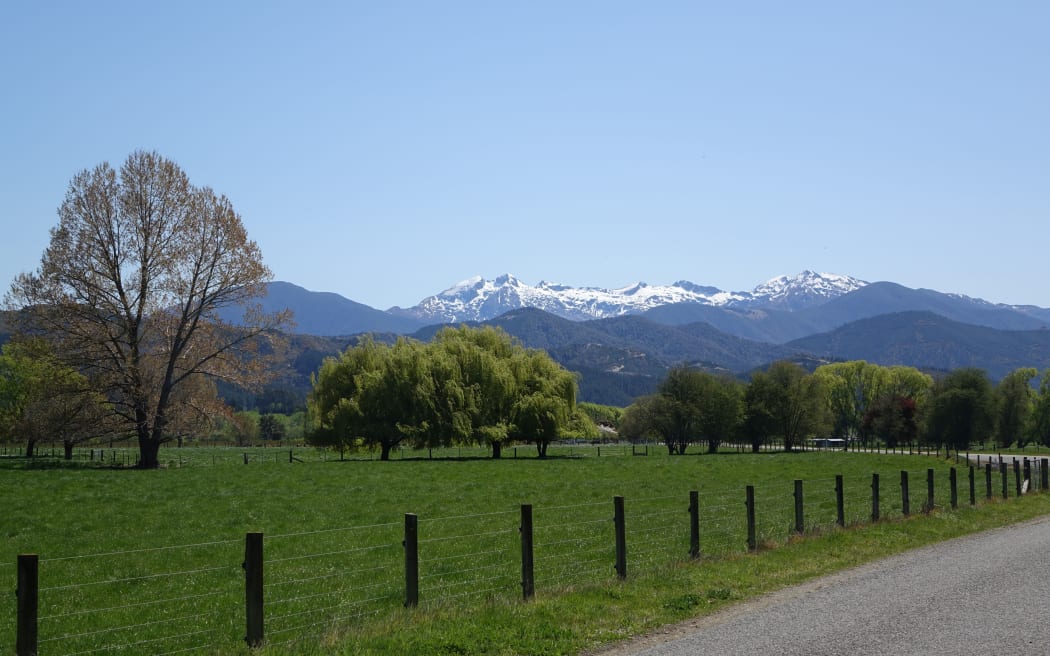
Farmers and growers argue that a dam will help solve increasing water shortages in rural Tasman. Photo: RNZ / Tracy Neal

